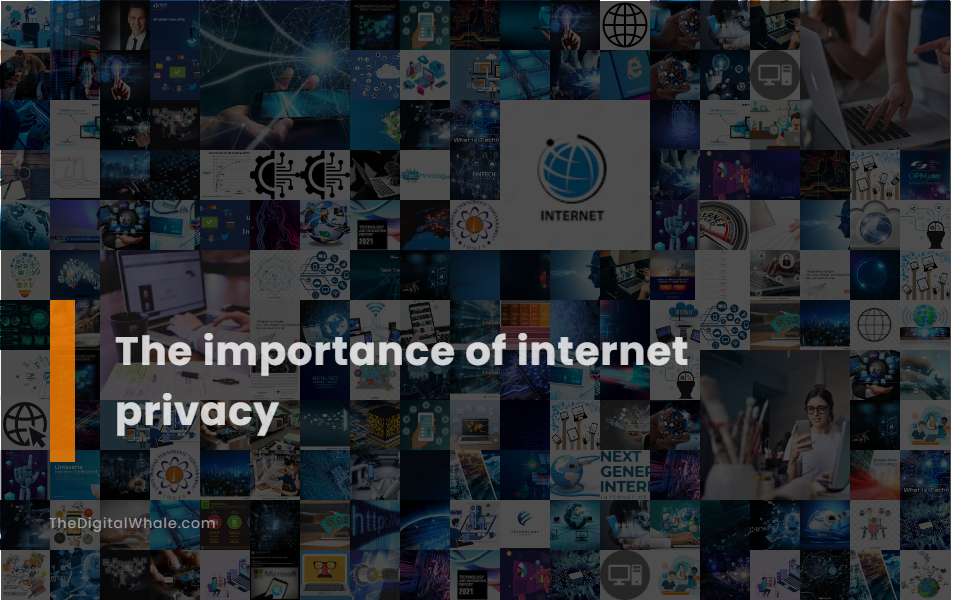The Importance of Internet Privacy
What are social boundaries? What are some of the ways in which internet privacy can be compromised? Let's find out more about The Importance of Internet Privacy.

Protects Against Cyber Attacks
Protecting your online privacy acts as a barrier against cyber attacks by reducing the amount of exploitable data available on the internet, making it more challenging for malicious actors to carry out successful attacks, such as phishing scams and data breaches. For a deeper understanding of how to safeguard your digital footprint, you can explore more on Online Privacy, a crucial component in the fight against cyber threats.
Gives Users Control Over Their Data
User control over their data is crucial for internet privacy as it empowers individuals to make informed decisions about their personal information, allowing them to decide what data they share, with whom, and under what conditions, thereby protecting themselves from potential data breaches, identity theft, and invasive practices. Giving users control over their data is essential for online privacy as it enables them to maintain autonomy in the digital age, preventing indiscriminate collection and sharing of personal information by companies and governments, and protecting against cyber attacks and the misuse of their data.
Prevents Identity Theft
Maintaining internet privacy is crucial for preventing identity theft. It involves securing personal information online by using strong passwords, monitoring credit reports, and being cautious about sharing sensitive data to avoid unauthorized access and fraudulent activities. To further strengthen your defenses, consider utilizing advanced security measures. Implementing strong, up-to-date security software, avoiding public WiFi without a VPN, and employing two-factor authentication can significantly help in protecting your identity from malicious activities and cyber threats.
Safeguards Personal Integrity
Internet privacy is crucial for safeguarding personal integrity as it protects personal data from misuse, ensures confidential communications, and maintains personal boundaries, thereby preserving individual autonomy and dignity in the digital realm. According to Altourage, respecting data privacy empowers individuals to control their personal information, protecting them from identity theft, financial fraud, and unwarranted surveillance, which are essential for preserving their privacy and dignity.
Promotes Trust in Digital Interactions
Internet privacy is crucial for promoting trust in digital interactions as it ensures that personal information is collected, stored, and used in accordance with privacy policies and regulations, fostering confidence and reliability in online activities. For more information on how trust can be optimized in digital interactions, check out this insightful article on Digital Trust. This approach is essential for building a secure digital environment where individuals feel safe and assured in their online experiences.
Related:
What are the dangers of technology being used too much? Why are people generally more efficient when using technology? Let's find out more about Is Technology Making Us Lazier?.
Upholds Fundamental Rights of Individuals
Internet privacy is crucial as it upholds the fundamental rights of individuals by protecting their personal data, ensuring the right to privacy, access, rectification, and erasure of personal data, and providing mechanisms for redress against violations of these rights. The right to privacy, enshrined in various human rights documents, ensures that individuals are secure from unreasonable searches and seizures, and holds accountable those who misuse or steal personal data, thereby safeguarding personal autonomy and dignity. To delve deeper into this topic, consider exploring the Contract for the Web, which outlines principles to respect and protect people's fundamental online privacy and data rights.
Ensures Compliance with Data Protection Laws
Ensuring compliance with data protection laws, such as the California Privacy Rights Act (CPRA), the Children's Online Privacy Protection Act (COPPA), and the Health Insurance Portability and Accountability Act (HIPAA), is crucial for protecting personal information, avoiding fines and lawsuits, and maintaining trust between individuals and organizations. Compliance with these laws involves informing data subjects about data collection, allowing them to opt-out, access, correct, and delete their information, and ensuring the security and confidentiality of the data. For more detailed information, businesses can explore the Data Privacy Laws to understand the vital components necessary for safeguarding compliance and protecting individual's rights.
Protects Against Mass Surveillance
Protecting Internet privacy is crucial for safeguarding against mass surveillance, as it involves using tools like encryption, VPNs, and Tor to make surveillance more difficult and expensive for intelligence agencies, thereby preserving individual privacy and security. For more detailed steps on enhancing your online privacy, you can explore the comprehensive guide on Electronic Frontier Foundation's website, which outlines various strategies to fortify your defense against intrusive monitoring.
Maintains Autonomy Over Personal Information
Online Privacy provides users with the power to manage their personal data, allowing them to uphold a sense of independence in today's world where data is extensively collected by corporations and governments. This form of privacy ensures that individuals have control over how their data is gathered, utilized, and disseminated, thereby protecting them from exploitation or misuse without their approval. Understanding the significance of data privacy is essential, as it maintains our autonomy by granting us the ability to choose how and when we share our information. To explore this topic further, the Integrate.io Blog offers a comprehensive look into data privacy and its importance.
Secures Sensitive Data from Unauthorized Access
Securing sensitive data from unauthorized access is crucial to prevent hackers or malware from exploiting confidential information such as personally identifiable information, financial data, and medical records, thereby protecting individuals' privacy and complying with regulatory standards like GDPR and HIPAA. For more detailed insights on this topic, you can visit the informative article on Protecting Sensitive Data by UpGuard, which offers valuable guidance on safeguarding your data effectively.
Related:
What are the different types of scams that use the Internet? What is the meaning behind the use of disguised email in phishing? Let's find out more about "Phishing" and Other Internet Scams.
